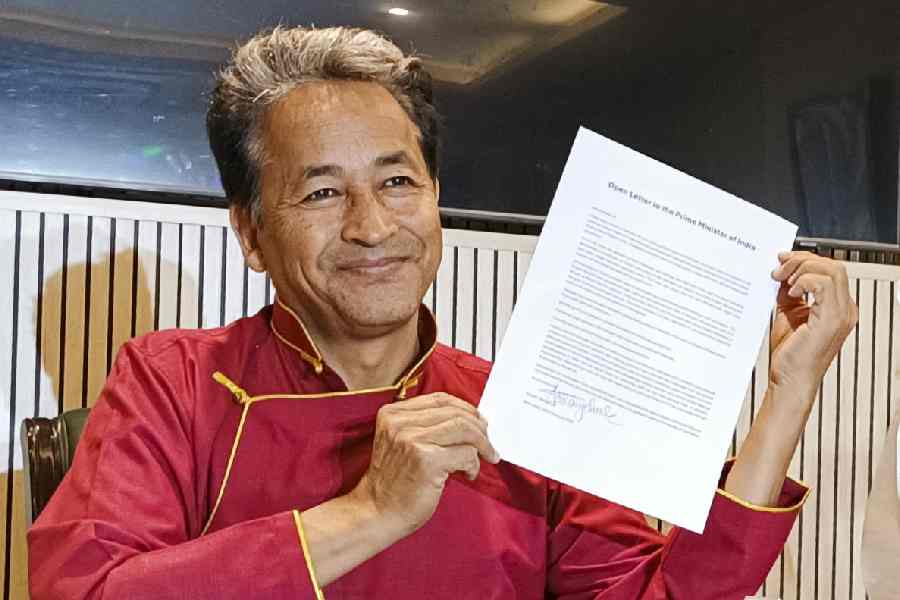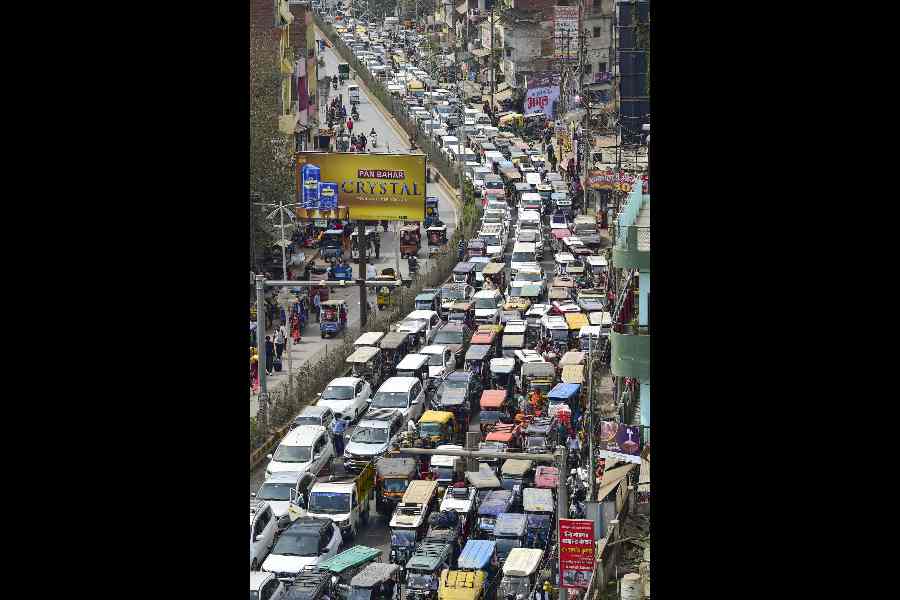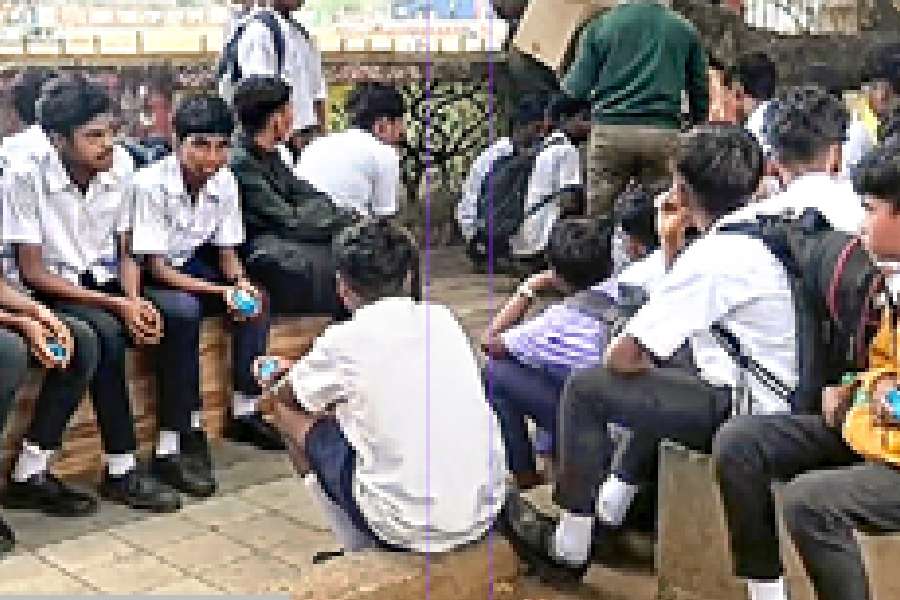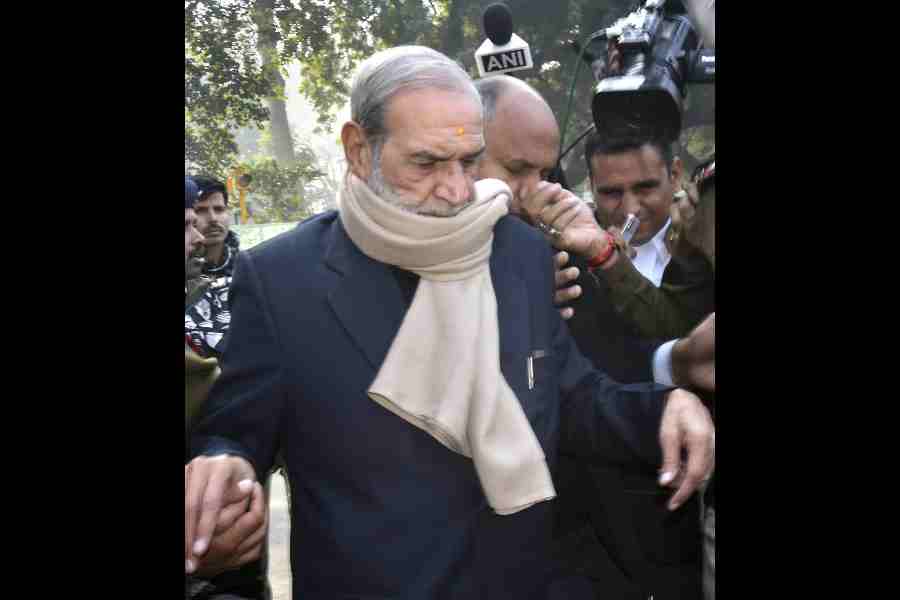Think outside the box
Sir — Bengalis are running out of ways to commemorate their heroes. Be it Rabindranath Tagore or Satyajit Ray, tributes to famous Bengalis through the ages have now been reduced to thaalis named after them or t-shirts with their face emblazoned on them. While a Machhlibaba sandwich sounds delicious, it is not pioneering. The reason Tagore and Ray are still worshipped is that they dared to step out of the box and experiment. Instead of following that example, people seem to have chosen to cash in on the nostalgia generated by them to line their pockets. Nostalgia, after all, is the opium of the masses.
Dipannita Ghosh, Calcutta
Right to dignity
Sir — In a significant order recognising sex work as a profession whose practitioners are entitled to dignity and equal protection under the law, the Supreme Court has directed that the police should neither interfere nor take criminal action against adult and consenting sex workers. This is heartening. The court’s observations should help sensitise the police, media and society toward sex workers, who have to bear the brunt of stigma along with poverty and exploitation. The government must now draw up appropriate legislation to free consenting sex workers from such harassment and grant them rights. The court has rightly suggested that the Centre and the states should involve sex workers or their representatives in the process of reforming laws.
Asish Agrawal, New Delhi
Under watch
Sir — A recent directive of the Indian Computer Emergency Response Team requires virtual private network service providers to store user data for five years. This is yet another step to make India a fullfledged surveillance State. Journalists, activists and others who use VPNs to hide their internet footprint will now be in a quandary about using such devices. Law enforcement agencies have welcomed the move, claiming that it will be easier to track criminals using VPNs. But such a step would only drive criminals and terrorists towards the dark web, which is much tougher to police than VPN services.
Devanshi Singh, Jaipur
Sir — India already has legislation that authorises 10 law enforcement agencies to tap citizens’ mobile phones and track their use of all internet-based platforms, including social media. With the new rule mandating VPN service providers to save user data for five years, privacy is now a thing of the past in India. These orders by the State are in spite of the fact that the Supreme Court has declared privacy as a fundamental right of every citizen. However, a bill to safeguard the privacy of citizens in keeping with the apex court verdict is still pending before the Standing Committee on Information Technology. The current dispensation passes contentious bills with its brute majority in Parliament and keeps stalling important ones in parliamentary committees.
Aditya Basak, Mumbai
Sir — The Central government is trying its level best to push India towards a dictatorship. With the institutions of democracy under its control as well as the passing of laws that are slowly throttling dissent, there will soon be little scope for any opinion other than that of the majority in India.
S.S. Paul, Nadia
Wrong idea
Sir — Two officers of the Indian Administrative Service have been transferred to Ladakh and Arunachal Pradesh, respectively, as punishment for emptying a stadium in Delhi of athletes to walk their dogs. Two politicians — the Trinamul Congress member of Parliament, Mahua Moitra, and the National Conference leader, Omar Abdullah — have raised pertinent questions in this regard. Why are farflung parts of the country like the northeastern states and Ladakh treated as destinations to ‘punish’ errant behaviour? The idea of the punishment is simple: sending individuals to an unfamiliar, potentially hostile location. However, what forms the unfamiliar and what constitutes punishment are ideas laced heavily with racism. Places like Ladakh and Arunachal Pradesh seem appealing when wanderlust hits people in peak summers, otherwise, they exist to teach lessons to errant bureaucrats.
Satakshi Jena, Calcutta
See the difference
Sir — Vegans do not consume anything that comes from an animal. This idea pleases most Indian vegetarians till they realise that nothing from a cow is allowed either — so, no milk, curd, paneer, ghee, butter, malai or cheese. The case for veganism is usually framed in terms of the damage that rearing livestock is doing to the world — it generates 7.1 gigatonnes of Co2-equivalents per year. It is true that the increase in the farming of animals for food has led to unprecedented imbalances in the world. Over the last few decades, the global population of animals reared for food has tripled, while the population of wild animals has declined by twothirds. Clearly these are not concerns that plague vegetarians who dig into plates of matar paneer with gusto.
Pavel Das, Calcutta










